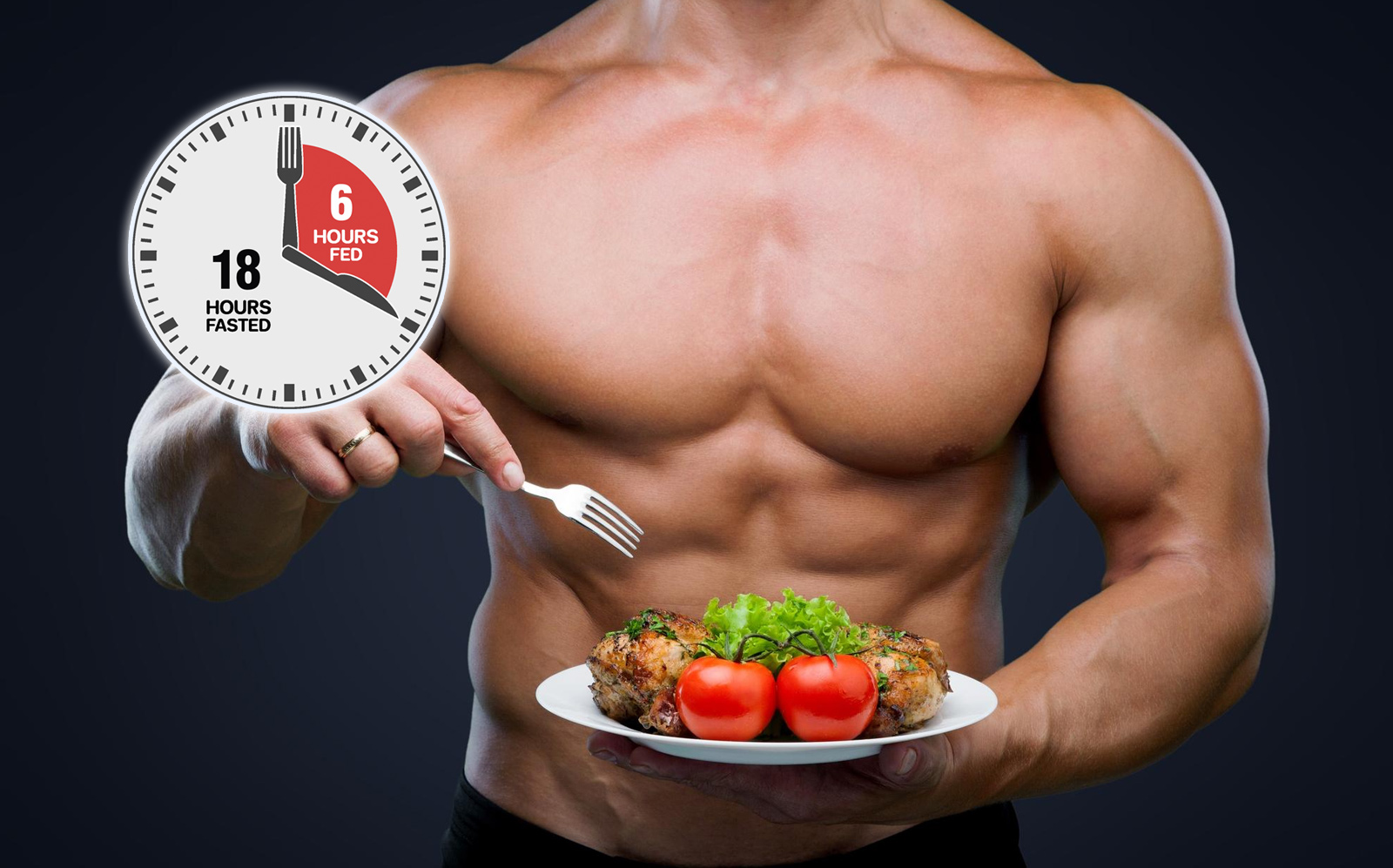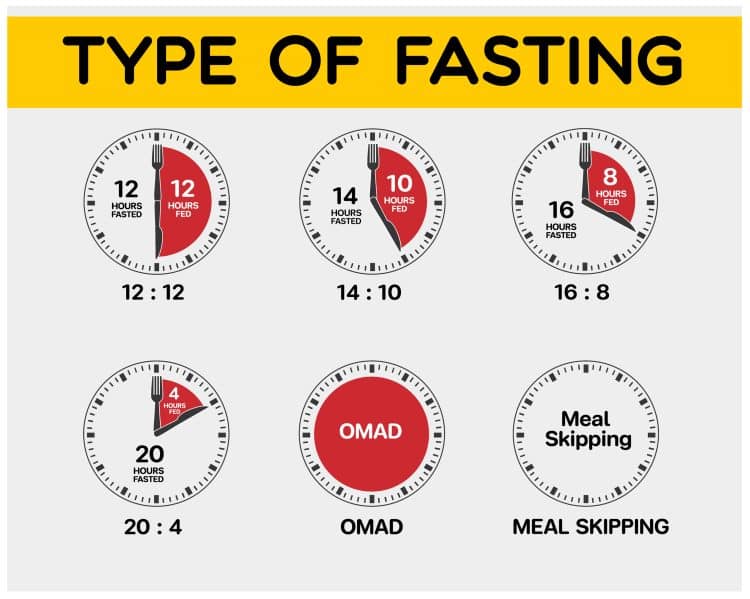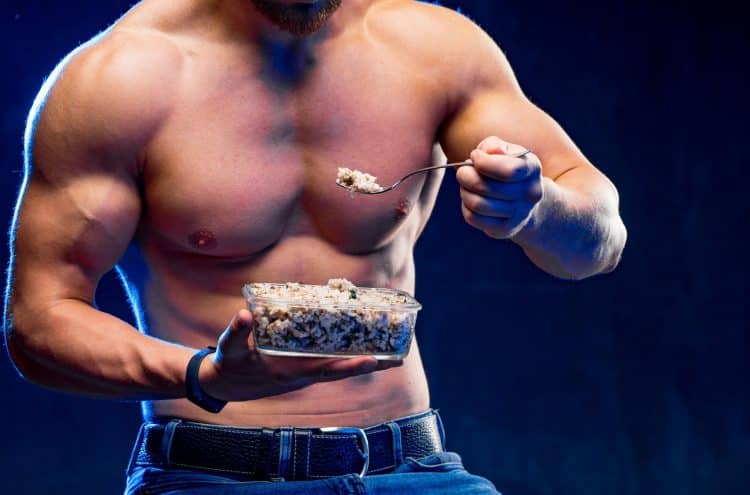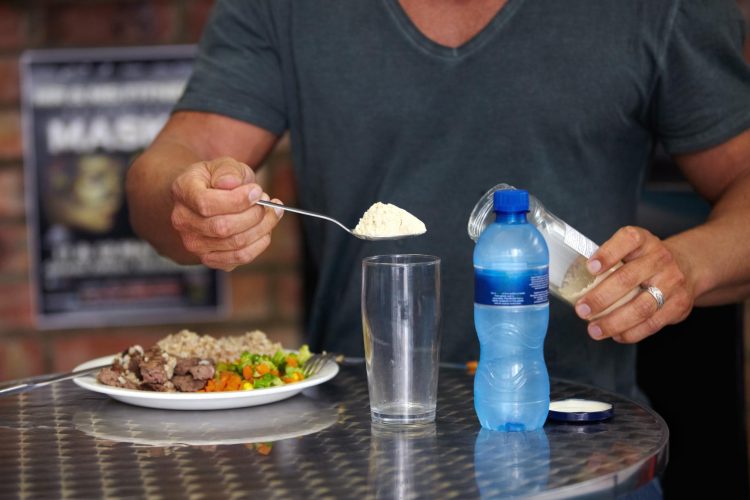Fasting has been a topic of discussion in bodybuilding circles for some time, making it crucial to cut through the noise. In this article, we’ll explore different fasting methods, their potential benefits and drawbacks, and how they impact your muscle-building and fat-loss goals.
According to research, fasting can lead to weight loss to a certain degree. A 2022 systematic review of 66 scientific articles unequivocally showed that fasting has a significant impact on ketone levels, resulting in accelerated fat loss. (1)
With that in mind, let’s examine how all of this relates to bulking and cutting, lean mass maintenance, energy levels, and every other notable aspect of bodybuilding.
Calculate Your Autophagy Timeline
Find out exactly when your body enters autophagy based on your unique profile, diet, and fasting protocol.
Calculate My Autophagy Window →Types of Fasting
There are numerous ways to practice intermittent fasting. Each approach has its unique way of doing things. Intermittent fasting (IF) is the most popular form of fasting. The core premise of every IF diet is the same: you must restrict your food intake to a particular period.
Intermittent fasts can occur during various times of the day, not just during traditional waking hours. For instance, some fasting practices involve not eating during the day (Ramadan fast), and in some cases, you may not eat for three days straight.
That said, here are the most popular types of fasting:
1. Time-Restricted Eating
Time-restricted eating, also known as intermittent fasting, is the most popular fasting regimen.
IF splits your day into two windows—a fasting and an eating window. The duration of an intermittent fast can vary, but most bodybuilders adhere to a 16-hour fast followed by an eight-hour eating window.
During the fasting window, you must abstain from consuming calories. You are only allowed water, tea, and black coffee. Some would add zero-calorie sodas to the list, but I would advise against it. Some sweeteners are known to cause an insulin spike, and phenylalanine can stimulate mTOR, which can interfere with the benefits of a fast.
2. 5:2 Fast
The 5:2 fast or 5:2 diet is a weekly fasting schedule during which you eat normally for five days and restrict your daily calorie intake to 500-600 calories for two non-consecutive days.
The 5:2 fast is perhaps so popular because some people find it easier to fast only twice a week rather than all the time.
One thing worth noting is that some studies have shown that 5:2 fasting can cause significant spikes in ketone levels and, therefore, fatty tissue utilization. The 2018 review showed that 5:2 fasting results in higher circulating ketone levels than regular eating patterns and the 18:6 fasting method. (2)
3. Alternate-Day Fasting
As the name suggests, alternate-day fasting involves fasting every other day. On fasting days, you can consume 500 calories (or 20–25% of your energy requirements), followed by a day of normal eating.
From what I’ve seen, alternate-day fasting seems to be one of the most effective approaches for short-term weight loss because it really leans into caloric deficit, which is the main driving force behind weight loss.
4. 72-Hour Fast
The 72-hour fast has been quite popular lately, primarily because of the rave reviews from Dana White (CEO and President of UFC). Essentially, the 72-hour fast is a three-day water fast during which you’re not allowed to eat anything. The goal of the extended fasting window is to enter the state of ketosis and boost autophagy.
You can only consume water, tea, or black coffee during the 72-hour period. In some cases, a cup of bone broth per day is tolerated as it can help mitigate some side effects and introduce vitamins, minerals, and electrolytes back into your system, but that’s about it.
However, while low in calories, bone broth still breaks your fast. That said, its calories are unlikely to mess up ketosis or autophagy.
Benefits of Fasting For Bodybuilding
Fasting could be a viable tool in achieving your bodybuilding goals thanks to the following benefits:
1. Accelerates Fat Loss
Training in a fasted state could potentially lead to a more effective cutting phase, which is one of the main reasons bodybuilders turn to intermittent fasting. The key word here is potential. While this should work in theory, the evidence supporting this hypothesis remains relatively slim. (3)
Nevertheless, anecdotal evidence exists, and in theory, training in a fasted state should lead to more effective fat loss.
To understand why that happens, you must remember that your glucose and glycogen stores — the body’s primary sources of fuel — are finite resources that need to be replenished through food. However, when that doesn’t happen for several hours, your body needs to find an alternative energy source, so it begins to enter the state of ketosis. When that happens, your body becomes more efficient at breaking down stored fat as fuel.
Finally, rigorous (or even light) exercise burns through already suboptimal glycogen stores quite quickly, forcing your body to tap into the stored fat tissue for energy, which is what bodybuilders want during the cutting phase.
2. Improves HGH Release
Human growth hormone (HGH) is one of the most critical hormones during development and is associated with numerous processes within the human body. It is responsible for your height, building and retaining muscle mass, and organ function.
Biohacking HGH release through lifestyle and diet changes is possible. Studies have shown that fasting can affect HGH release quite significantly. A 1988 study showed that fasting can increase HGH pulse frequency and amplitude (4). Another study from 1992 showed that a two-day fast could result in a five-fold increase in endogenous HGH release. (5)
In other words, fasting can help your body produce a lot more HGH a lot more often.
Will that translate to more muscle growth or help bodybuilders retain muscle mass? It’s hard to tell, but probably not. The endogenous release after 12-16 hours is incomparable to the exogenous doses of HGH some bodybuilders take to enhance their physique. The five-fold increase, while extremely high, does require a 48-hour fast, leaving your muscles without the amino acids necessary for growth.
3. Helps Retain Lean Muscle Mass
When done correctly, intermittent fasting can help prevent muscle tissue catabolism during the calorie-restrictive stages of the cutting phase.
Here’s the basic premise.
Intermittent fasting doesn’t mandate cutting calories or limiting your food choices. It simply means eating only during designated hours each day.
In other words, you can still get a sufficient amount of protein, carbs, and fats to fuel your muscles and keep them well-fed and thriving.
4. Induces Autophagy
The direct impact of autophagy on muscle growth, fat loss, or bodybuilding in general is still mostly unknown. However, autophagy’s impact on cellular health is undeniable, which bodybuilders can greatly benefit from.
As the body becomes increasingly nutrient-deficient due to a lack of food, autophagy starts ramping up. Based on what we know so far, this usually happens after the 18th hour, so regular 16:8 intermittent fasting may not be enough to trigger it.
Regardless, when triggered, the body begins removing damaged cells and cellular components to make way for new, healthier cells. In theory, this could aid muscle tissue recovery and maintenance.
Drawbacks of Fasting For Bodybuilding
Despite its massive popularity, intermittent fasting has its drawbacks. Let’s look at some:
1. Limited Weight Loss Capabilities
IF is often associated with weight loss because people usually eat fewer calories due to their short eating window. However, fasting won’t help you lose weight if you are not in a caloric deficit.
That said, to lose weight, bodybuilders will still have to maintain a calorie deficit, regardless of their feeding schedule. Fasting might make eating in a caloric deficit easier due to a short eating window.
Funnily enough, fasting could also result in overeating due to excessive hunger, which is the complete opposite of what one should do when trying to lose weight.
2. Sub-Optimal Muscle Building Regime
In the off-season, a competitive bodybuilder must eat in a calorie surplus to gain lean muscle tissue. Eating to build muscle (assuming it is not junk food during a dirty bulk) is not easy.
One would have to eat two to three massive meals during the six or eight-hour window, which could result in overeating, stomach discomfort, pain, or just pure laziness, none of which are good.
I’m not saying it is impossible to build muscle while fasting. However, achieving a calorie surplus for optimal growth is easier with unrestricted eating.
Another thing to consider is meal timing. If you train in the morning after fasting for eight to 10 hours and don’t eat for the next six to eight hours, there is a very good chance there won’t be enough circulating amino acids in your body for your muscles to utilize.
Without amino acids, your muscles can’t effectively repair themselves, which means they can’t grow to their fullest potential.
3. Reduced Training Intensity and Capacity
Training when your energy reserves are low could mean you can’t go as hard as you want for as long as you want.
This hypothesis is based on the same premise as the one about fat loss. When training in a fasted state with lower energy reserves, it is far more likely that you will become tired faster, regardless of whether your body is in a state of ketosis or not.
The same goes for performance. If there’s not enough glycogen in your muscles, you may not be able to generate the same amount of force as you otherwise would, and muscle fatigue could set in sooner rather than later.
4. Nutrient Deficiencies
Nutrient deficiencies are a common problem when fasting for two reasons:
- Indulging in junk food
- Not planning meals
Eating junk food is common when people are fasting. The hunger ramps up, and you begin looking for anything to eat, and more often than not, that’s processed snacks or fast food. The problem with that is that neither of those is nutritious.
Eating delicious but unhealthy processed food brimming with simple carbs and trans fats may temporarily curb your hunger, but it is rarely healthy. It almost always lacks protein, healthy fats, complex carbs, vitamins, and minerals.
On the other hand, nutrient deficiencies could very well be the result of insufficient food variety. When your feeding window is limited, eating different foods to get all the nutrients is hard. Most people stick to the basics and just focus on the total calories, which leads to this issue.
How To Incorporate Fasting Into Your Bodybuilding Routine for the Best Possible Results
Despite the aforementioned drawbacks, you can still incorporate IF into your bodybuilding routine and continue to progress. Here’s how.
1. Dial-In the Meal Timing
Getting your meal timing right can be the difference between retaining and losing muscle mass. You must organize your training schedule around your feeding window.
There are two ways to go about this:
- Training after the first meal
- Eating after the training session
Training after the first meal ensures your energy levels are elevated, and there’s enough protein in your system to support muscle growth. You will have the energy to train long and hard, amino acids for muscle protein synthesis, and you won’t have to deal with any side effects associated with hunger, such as stomach pain.
Eating shortly after the training session, on the other hand, allows you to train in a fasted state and potentially accelerates fat loss. Having a meal shortly after prevents your muscles from starving for protein, so you essentially get the best of both worlds.
Whether you choose one or the other will depend on your goals, and it really does not matter which one you pick. However, picking neither will limit your muscle growth and recovery potential.
Dr. Andrew Huberman’s Take on Fasting and Muscle Hypertrophy
In his podcast, Dr. Andrew Huberman (Associate professor of neurobiology and ophthalmology at Stanford University School of Medicine) detailed the effects of fasting on muscle hypertrophy.
“It does appear that muscle tissue is better able to undergo hypertrophy by virtue of the fact that there’s better or enhanced protein synthesis early in the day because of the expression of one of these particular clock genes called BMAL. BMAL regulates a number of different protein synthesis pathways within muscle cells, such that eating protein early in the day supports muscle tissue maintenance and/or growth. — Andrew Huberman
2. Eat Healthy
Just because you’re not eating for 16–18 hours does not mean you can later eat whatever you want. Ice cream, cookies, and a can of Coke still have the same effect whether you’ve fasted or not.
Eating a balanced diet comprising complete protein, complex (and simple) carbohydrates, and healthy fats is still the best way to approach dieting.
3. Cheat a Little
This may be a little controversial, but if you’re not fasting for religious reasons, adding a bit of protein here and there could be beneficial if you’re a bodybuilder looking to maintain muscle mass. If you want to, drink a protein shake before your workout or after you wake up to maintain a steady supply of amino acids.
The best part is that most whey isolate protein powders contain around 100 calories per serving. Even better, the protein has a minimal effect on your blood sugar levels, meaning if you just mix water and protein powder, the shake won’t significantly interfere with your fast.
4. Drink Coffee
If you aren’t sensitive to caffeine, drinking black coffee or taking caffeine pills can help with energy levels and motivation before working out — even if you feel depleted from fasting.
Black coffee is calorie-free, so you won’t see any spikes in your blood sugar levels, meaning it won’t break your fast. It is also mostly water, so dehydration is not something you should worry about.
On the other hand, take your caffeine pills with 6–8 oz of water to prevent dehydration. Caffeine will not severely dehydrate you, but its diuretic effects may be more evident if you’re not properly hydrated.
5. Listen To Your Body
Despite all the benefits and tips I just gave you, you still have to listen to your body and personalize your fasting protocols. That is the only way to fast sustainably for a long time.
The best way to ensure great results is to disregard generic advice like “5:2 fast is best for weight loss.” Listen to your body, examine your situation, set your goals, and answer the following questions:
When do you get up? What do you do for work? When do you train? How hungry are you generally? Are you constantly fatigued? Do you sleep well? Do you feel sharp and focused during the day?
Adjusting your fasting protocol around all these things is vital if you want to feel good and make progress in the gym.
Conclusion
Intermittent fasting can be very beneficial for bodybuilders and non-exercisers.
Its effects on body composition, weight loss, hormone secretion, and others make it one of the best approaches to training and dieting. Also, its flexible nature and variety of options allow everyone to find what works for them.
With that in mind, you must also consider the cons. While there aren’t massive disadvantages to fasting, knowing they exist can help you mitigate them and achieve the desired results.
References:
- Vasim I, Majeed CN, DeBoer MD. Intermittent Fasting and Metabolic Health. Nutrients. 2022 Jan 31;14(3):631. doi: 10.3390/nu14030631. PMID: 35276989; PMCID: PMC8839325.
- Anton SD, Moehl K, Donahoo WT, Marosi K, Lee SA, Mainous AG 3rd, Leeuwenburgh C, Mattson MP. Flipping the Metabolic Switch: Understanding and Applying the Health Benefits of Fasting. Obesity (Silver Spring). 2018 Feb;26(2):254-268. doi: 10.1002/oby.22065. Epub 2017 Oct 31. PMID: 29086496; PMCID: PMC5783752.
- Schoenfeld BJ, Aragon AA, Wilborn CD, Krieger JW, Sonmez GT. Body composition changes associated with fasted versus non-fasted aerobic exercise. J Int Soc Sports Nutr. 2014 Nov 18;11(1):54. doi: 10.1186/s12970-014-0054-7. PMID: 25429252; PMCID: PMC4242477.
- Ho KY, Veldhuis JD, Johnson ML, Furlanetto R, Evans WS, Alberti KG, Thorner MO. Fasting enhances growth hormone secretion and amplifies the complex rhythms of growth hormone secretion in man. J Clin Invest. 1988 Apr;81(4):968-75. doi: 10.1172/JCI113450. PMID: 3127426; PMCID: PMC329619.
- Hartman ML, Veldhuis JD, Johnson ML, Lee MM, Alberti KG, Samojlik E, Thorner MO. Augmented growth hormone (GH) secretory burst frequency and amplitude mediate enhanced GH secretion during a two-day fast in normal men. J Clin Endocrinol Metab. 1992 Apr;74(4):757-65. doi: 10.1210/jcem.74.4.1548337. PMID: 1548337.
Tip: If you're signed in to Google, tap Follow.













